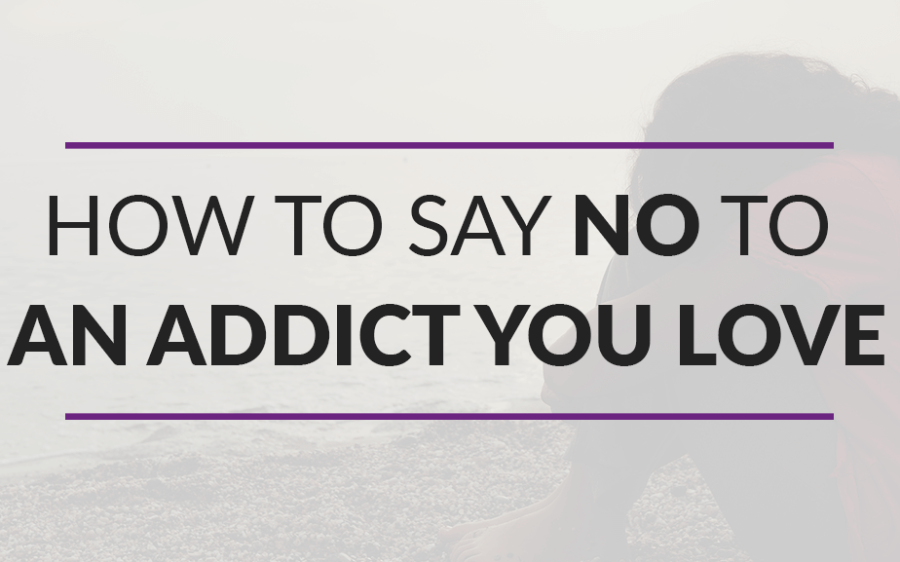
Learn About Outpatient Treatment
It can be hard to watch when a loved one is struggling with addiction. Addiction affects a person's physical, mental, social and financial well-being, which can have drastic effects on a person's quality of life.
Below, you'll learn how not to enable someone with addiction and what you can say to someone in recovery. You'll also learn how to properly support your loved one so they can get the help they need.
Enabling behavior is when a well-intentioned friend or family member provides support, financial assistance or care to someone with an addiction. A person can exhibit enabling behaviors before they even realize it. For example, a loved one may say they're struggling to pay their rent, so you offer to pay for a while until they get back on their feet. Down the line, you learn they've been using the money for drugs.
A person who enables a loved one's substance use disorder often exhibits noticeable traits, such as:
Individuals who participate in enabling behaviors should face their emotions about their loved one's addiction. Taking the first step and admitting that there's a problem can help your loved one seek sobriety.
When your loved one is struggling with addiction, you want to do everything you can to help them. However, you don't want to go too far, enabling them to continue using drugs or alcohol. Here are ways to support your loved one through this challenging time without enabling them to further their addiction.
One of the first and sometimes most challenging steps is learning to say no to the people you love. Someone who's addicted to substances can go through severe changes. When they once may have reacted calmly to you saying no, they may be more aggressive now. Your loved one may also try to see how far they can push beyond your boundaries.
When you say no, stick with it so your loved one doesn't take advantage. Some ways to learn how to say no include:
People struggling with addiction often become skilled at manipulation, even at the expense of someone they love. Someone who manipulates will lie, offer excuses and deceive to get what they want.
Your loved one may try to convince you that they aren't using, come up with an excuse for you to give them money or use some other deception to make you believe that a problem doesn't exist.
While you want to trust your loved one, it can be challenging when you know they're struggling with addiction. If you can't prove what they say is true or that they're actively seeking help for their addiction, they could be trying to manipulate you.
Learn About Outpatient Treatment
Some people believe tough love is the best way to help someone through addiction. However, tough love and cutting your loved one off can ultimately make them feel isolated.
Instead, try to offer at least some level of support to your loved one. Your dedication to their recovery can be a significant motivator through their treatment. You can even show your support by helping them find addiction treatment programs that can provide them with the professional help they need.
An end goal can help you make tough decisions. If your goal is to get your loved one into rehab, you can put a condition on your support to help motivate your loved one. Remember to stay calm when you explain this boundary, and avoid making it an ultimatum.
If someone with an addiction asks for money, you can say that you'll stop helping your loved one until they see a professional because you don't want to contribute to their harm. While they might not react well initially, they may come around when they realize they need your support to get through their addiction. Remember to make your support about their health and well-being, not their substance use.
Taking care of a loved one struggling with addiction is noble and requires a good heart. However, it can become overwhelming, especially if you can actively see the harm an addiction is doing to someone you care about. It's essential to protect your well-being so you can continue to offer quality support.
Sometimes, that means taking a break, setting boundaries and refusing to offer some types of support. For example, you may pay your loved ones rent to help them out, but it could be causing you excessive stress. You can prioritize yourself while still helping your loved one by saying that you'll support them emotionally, but you can't offer financial assistance anymore.
Another way you can support your loved one while giving yourself space to care for yourself includes helping them find an addiction treatment center. You can look for a rehab program with medically assisted detox, inpatient and outpatient programs and various types of therapy. You can also look for an addiction treatment program with aftercare planning to help prevent relapse.
We know how hard it is to watch someone you love struggle with addiction. You're likely worried about their well-being but can't find the right words to encourage them to seek help. If you're looking for addiction specialists who can help you get your loved one the addiction treatment they need, consider Diamond House Detox in Northern California.
We are specialists in addiction treatment and can help your loved one detox from alcohol and drugs as they undergo different therapeutic treatments. Your loved one will have access to 24/7 care when they stay at our residential facility. Contact us today to learn more about how we can help your loved one overcome addiction.